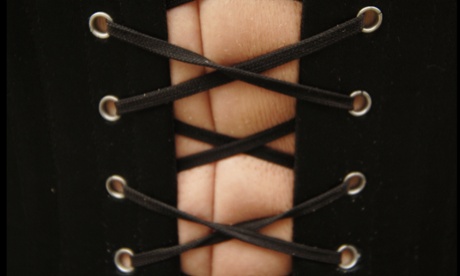
Sex and sexuality are very contested spaces for people with disabilities. Services, governments, support workers and even the best, most forward thinking parents often see it as a bridge too far. Many people with disabilities are supported in every other aspect of their lives, but this is often delivered in a way that treats them as asexual.
Almost every person with a disability can tell you of a time when they sought to express themselves sexually, only to be thwarted by those around them. It happened to me. I have cerebral palsy from birth, and my physical disability means I cannot independently dress, shower, feed myself or do any fine motor tasks. I can, however, socialise independently, speak my mind, study, work and pay taxes.
As a young adult I was living in rural North Queensland, working at TAFE and having a fling with a moderately important, intelligent public servant. I had sorted out contraception and succeeded in dating this person to the “interested” stage, only to find out that my usually accepting family could not even entertain the idea. They rang me and said “no, no, no”. They rang my boss’ mother-in-law, who rang her daughter, who rang her husband, who said to me “they think you’re going to get some”. They even rang the interested person to discuss it.
If it wasn’t so perverse, it would be funny.
My mother was the only one who moderately supported me and called my sisters off their hyper-protection of my virginity, but even she didn’t really know what to do next.
As I’m a fairly independent and determined person, I wasn’t going to take this thwarting of my sexuality quietly. I took my hard-won individual support package funding and set off to lead an independent life. I was lucky. I had support, could live in a regular apartment, and had the academic credits and nous to see a PhD as an exit-strategy from the asexual, country Queensland wasteland to the bountiful fruit garden of a capital city and university campus.
There was a lingering concern. I was a 30 year old virgin, and my medically-trained sister had led me to believe my bits might not work. So I used the yellow pages to get a nice man in a suit to come and relieve me of that worrisome cherry.
After that, it was game on. There was a hot and heavy long term multi-night stand with a person I’d known in the sector for years (just in case you find this suspicious, I should add that he had not been involved in delivering any disability services to me for years).
All this while, I had fabulous support workers. They’d cook dinners; squeeze me into spunky corsets and fishnets, refilled my condom purse. I did have one worker who got squeamish at putting lip balm on my nipples. I helped her by getting her to put it on my finger, so I could apply it myself (I sense my audience getting a bit uncomfortable here, thinking they don’t want to read details – but they are important, because you need to know that I cannot dress or feed myself – so support is an important part of helping my life to unfold).
I also took to social media to invent the persona of a sexually intriguing woman who just happened to not dress, feed or cook for herself, yet managed to live alone and have a number of random, casual sexual encounters. It was a space in which I had power and agency, where I could put trust in strangers. You can find out a lot about men and how they will treat a woman when they let their guard down because they want to walk in your secret garden. It’s easy to weed out the weirdos and not give them details.
I was the goddess of my own sexual kingdom, and knights came to court me. Through the internet I met the engineer, the logistics person, the skater boy, the young builder who bought us pizza, the Greek guy who took his wedding ring off ...
The reaction of my support workers was also very interesting. Even when they were committed Christians, like one young woman was, they seemed to value me – the whole person – over their own beliefs. This young woman, who sneezed so quietly and delicately that Freud would have been concerned, gave me dinner one night before I was set to meet someone and made me solemnly vow that I would “call her if I needed her”.
This thoroughly enlightened attitude begs the questions: if a committed Christian could honour and support my sexuality, why do so many people try to deny it? Why don’t we facilitate sexual contact for people with disabilities? And why are we so prudish about sex in general?
These are crucial questions that society must address if people with disabilities are to exercise their full human rights. Governments need to stop making “safeguarding” laws that effectively limit the sexual opportunities of people with disabilities. In some states of Australia, it is an offence to have sexual relations with a person who has “an impairment of the mind”, rendering many people with disabilities celibate.
Solicitation laws need to permit support to be given to people with disabilities who require assistance to negotiate and organise the services of sex workers. Service providers and direct care/support workers need to be less prudish, and start respecting the privacy and desirous needs of people with disabilities. And families need to understand that children with disabilities grow into adults who have the full range of adult physical and sexual needs.

